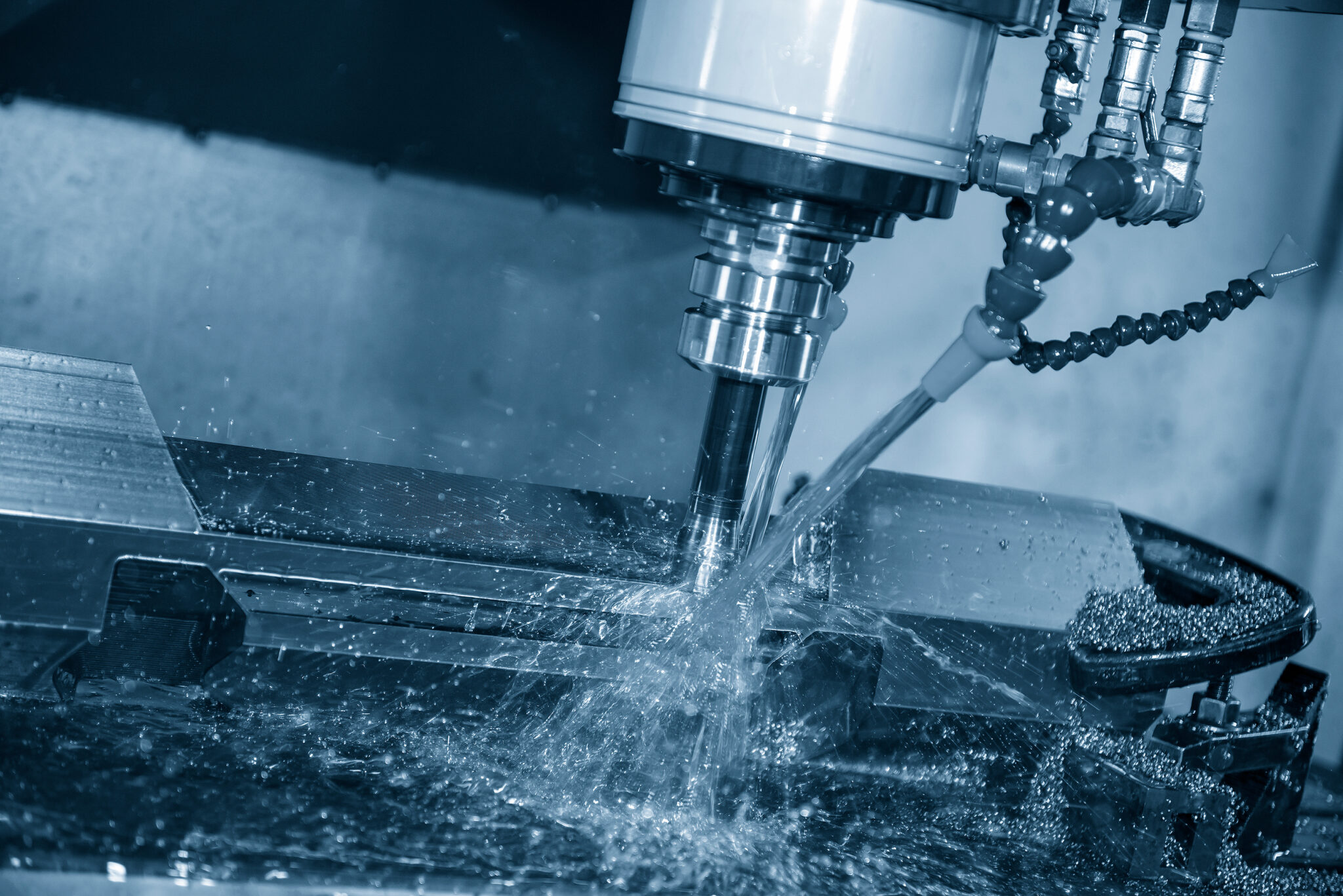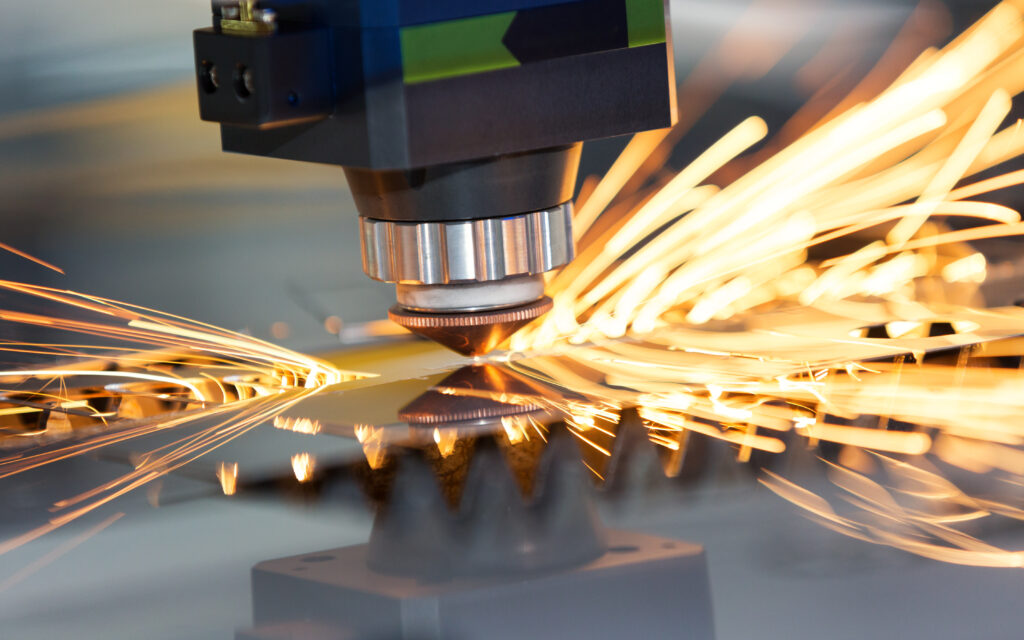

Previously published on fastradius.com on November 18, 2020
Computer Numerical Control (CNC) machining is a versatile, high-precision traditional manufacturing process that’s ideal for medium to high-volume production runs of complex parts. CNC machining is a subtractive process, meaning the machine whittles away at a solid block of material to create the finished part — rather than gradually depositing material, as is seen in additive manufacturing methods. With CNC machining, manufacturers can rapidly produce prototypes and durable parts for specific applications.
Material selection is an incredibly important part of any manufacturing process, but engineers and product teams must be especially diligent when it comes to selecting materials for CNC machining. Since this process is compatible with a wide variety of materials — from metal to fiberglass to wood — it’s easy to mistakenly choose a material that’s sufficient for the project but not the best-suited. In this article, we’ll touch on key considerations for CNC machining material selection and give an overview of some common options.


Before getting into the particulars of material selection, product teams must first take stock of their project requirements. Start by considering these four questions:
Engineers must consider their part’s end-use and where it will be used, as these factors will have a significant impact on material selection. For example, stainless steel and carbon steel are both suitable for CNC machining, but only stainless steel is naturally corrosion-resistant. Choosing the wrong kind of steel here would compromise a part’s longevity. FDA, FAA, as well as any industry-specific regulations should also be top of mind.
If a part must be light — a common requirement when manufacturing for automotive and aerospace applications — there are plenty of low-density metal options available. Manufacturers might also consider using a plastic like ABS to keep weight down if they’re willing to sacrifice strength.
Strength can be measured in many different ways (tensile strength, wear-resistance, etc.), so engineers should determine what kind of strength — and to what degree it matters — is required for their part. These parameters will impact the size of the pool of viable materials. Similarly, temperature requirements will exclude certain materials from the outset. Engineers should also think about whether their part will be exposed to fluctuating temperatures, as nearly all materials expand or contract in response to temperature changes.
Material costs almost always influence material selection. The goal of most product teams is to select a material that maximizes desired material properties and performance while minimizing expenditure. Material costs are especially important when it comes to CNC machining because this process produces a relatively large amount of scrap material behind. Some materials — such as specialty metals — are extremely expensive, which could have a major impact on the cost-efficiency of the entire project, considering scrap material output. Engineers should carefully evaluate their budget before making any final decisions.
Since any material — metal or plastic — that’s hard enough for machining can be used for CNC manufacturing, product teams are spoiled for choice. This short list provides a quick gloss of some of the most common materials used in CNC manufacturing today.
Aluminum alloys are easy to machine in large volumes, have a good strength-to-weight ratio, and high thermal and electrical conductivity. They are also naturally resistant to corrosion. Aluminum 6061 is an all-purpose aluminum alloy often used for CNC machining. It is typically found in automotive parts, bike parts, sporting goods, and other recreational items. This material is highly machinable; however, it can be pricier than other metals and doesn’t hold up well in the presence of saltwater or certain chemicals. Aluminum 7075 is a step up from 6061. Ideal for aerospace frames and high-performance recreational equipment, it’s the strongest commercially available aluminum alloy.
Stainless steel alloys are strong and resistant to distortion, wear, and corrosion. 303 stainless steel includes sulfur for improved machinability, but this material has a number of limitations that engineers must keep in mind.
303 cannot be cold-formed, heat-treated, or welded, and special care must be taken with speed/feeds and the sharpness of cutting tools during CNC manufacturing. That said, 303 makes excellent nuts, bolts, non-marine grade fittings, shafts, and gears.
304 stainless steel is a non-magnetic, all-purpose steel for CNC machining known for its toughness. It’s readily machinable and corrosion-resistant like 303, but it can be welded. 304 is well-suited for a wide range of consumer and industrial applications, kitchen accessories, tanks and pipes, architecture, and more. 316 stainless steel is even more corrosion-resistant than 304 or 303 thanks to the addition of molybdenum. It’s strong, weldable, and one of the few marine grade stainless steels.
Since it’s impossible to tell stainless steels apart by sight alone, engineers should make sure to test the raw material to confirm the characteristics of the steel they’re using.
Carbon steel 1045 is a mild grade of carbon steel. Manufacturers often machine with this material because it is less expensive than most stainless steels but stronger and tougher. 1045 is easy to machine, weldable, and can be hardened or heat-treated to achieve various hardnesses.
This material is ideal for nuts, bolts, gears, shafts, connecting rods, and other strong, small mechanical parts. 1045 can also be used for architectural applications, but it must be surface-treated to prevent rust and corrosion.
Known for its high strength, toughness, and corrosion resistance, titanium is often employed to manufacture parts for the most demanding aerospace, military, and industrial applications. This material is also biocompatible and suitable for use in medical device manufacturing.
However, titanium is more expensive than any other metal in its commercial form, doesn’t polish well, and is a poor conductor of electricity. Engineers should also be aware that titanium is challenging to machine, and requires special cutters.
Nylon is an all-purpose, low-friction thermoplastic that is often used as an alternative to metal in CNC-manufactured parts. This material is stiff, strong, impact-resistant, chemical-resistant, but surprisingly elastic. Nylon responds well to additives and fillers, so engineers can feel free to manipulate this material to achieve their desired properties.
Popular applications for nylon include electrical molding, fuel system components, gears, food packaging, fabric, and more. However, nylon absorbs moisture easily, which may negatively impact the dimensional stability of a part.
This isn’t an exhaustive list, but it’s clear to see that CNC machining is an extremely versatile manufacturing process that requires thorough evaluation of project requirements in order to select a material best-suited for the part in question. Still, achieving the ideal balance of cost, quality, and time can be challenging.
With a trusted on-demand manufacturing partner like SyBridge, material selection is made easy. Our manufacturing experts have years of experience guiding product teams through the entire product development and production processes, starting with design and material selection. Let’s make something incredible together — contact us to get started.
Forget typical cycle times. We're pushing the boundaries of conformal cooling. While traditional approaches deliver…
Forget typical cycle times. We're pushing the boundaries of conformal cooling. While traditional approaches deliver…
From left to right: Brayden Janak (apprentice); Logan Vifaquain (CNC machining, Programming and CMM); Ron…
SyBridge Technologies is proud to announce we have been awarded the 2023 General Motors Supplier…
Today, designers and engineers are accustomed to working with digital tools in their day-to-day jobs.…
Optimizing Your Injection Molding Process for Cost-Effective Manufacturing Excellence In today’s competitive landscape, manufacturers are…